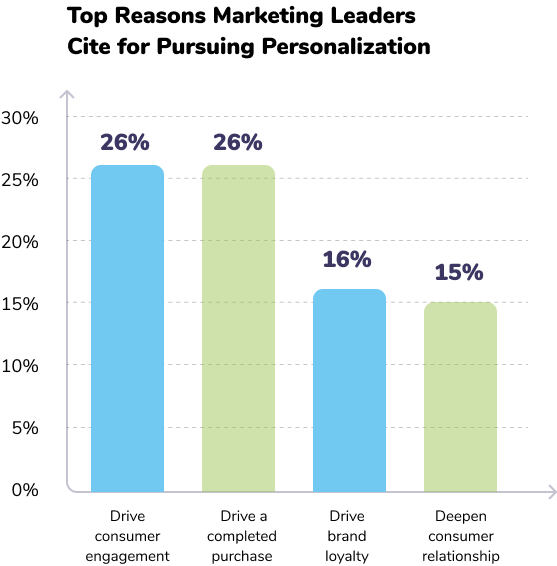Personalization
What is Personalization?
Personalization, one of the methods used by companies to better understand customer requests, is a process that enables the creation of unique experiences for users.
It is the practice of tailoring experiences, content, products, and interactions to individual users’ or customers’ specific needs, preferences, and behaviors. Moreover, data, insights, and technology are used to create relevant and targeted experiences that resonate with each individual, increasing engagement and satisfaction. Additionally, personalization can be used in a variety of contexts, including marketing, e-commerce, customer service, and user interfaces, to provide a more meaningful and relevant experience for the recipient.
“Despite all the personalization initiatives underway, only 12% of consumers feel like current brand personalization efforts meet their expectations, so there is an enormous opportunity to fill that gap. “
– Gartner
Why Personalization is Important
Improves Engagement: Personalized experiences capture and maintain users’ attention. Additionally, this increases their likelihood of interacting with content and offerings.
Enhances Customer Satisfaction: Offering relevant and tailored experiences to customers demonstrates that the brand understands and values its customers, therefore leads to increased satisfaction scores.
Boost Conversions: Personalized recommendations and offers nurture customers’ specific needs, which leads to higher conversion rates and sales.
Drives Brand Loyalty: Personalization leads to a stronger connection between customers and the brand. Therefore, it encourages repeat purchases and brand advocacy.
Increase in ROI: Personalized campaigns reduce wasted efforts and resources, resulting in a better return on investment scores.
Reduces Friction: Personalized experiences streamline the customer journey by presenting relevant options and reducing the need for users to search or navigate in depth.
Enhances Cross-Selling and Upselling: Personalization can suggest higher-value products based on users’ previous behaviors. Furthermore, this increases revenue opportunities.
Data Insights: It helps companies generate valuable insights about customer preferences and behaviors, enabling them to refine strategies and offerings.
Competitive Differentiation: Brands that offer personalization stand out in the marketplace, differentiating themselves based on customer-centric practices.
Improves Customer Retention: Satisfied customers who receive personalized content and campaigns are more likely to stay loyal and continue their relationship with the brand.
Adapts to the Digital Landscape: In today’s digital age, where consumers expect relevance and convenience, personalization aligns with modern consumer behaviors and expectations.

Driving customer engagement (26%) and driving a completed purchase (26%) are the top reasons marketing leaders cite for pursuing personalization, according to Gartner’s report in 2019. Consequently, driving brand loyalty (16%) and deepening customer relationships (15%) are other reasons marketers have.
“Obviously, customers want it. More than half, according to the Twilio report, say they would become repeat buyers after a personalized experience (7 percent over last year), and more than 60 percent of leaders said customer retention improved because of their personalization programs. Even more, almost 70 percent say they will increase their investments in personalization in the coming year.”
Essential Personalization Statistics
1. 66% of consumers expect brands to understand their individual needs.
2. 70% of consumers believe that how well a company understands their specific needs influences their loyalty.
3. 71% of customers are frustrated by impersonal shopping experiences
4. Personalization is the top priority for 51% of marketers.